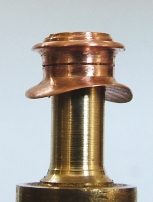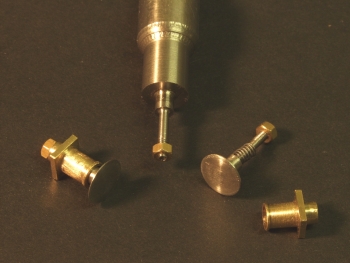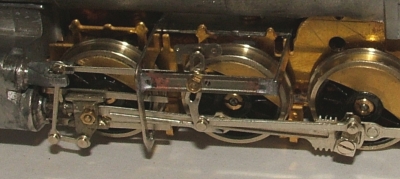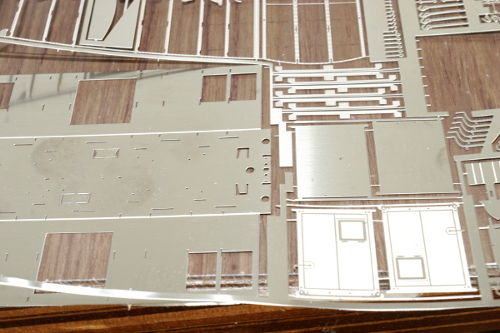|
| ||
Introduction I have put together this page to give people an idea as to my charges.The amounts I have given here are ball-park figures, not 'list prices' as such, so please contact me for an individual estimate. Terms and Conditions of trading can be viewed and downloaded as a .pdf file by clicking here. Pattern-making, One-off Components 
 I'm a bit of a way off being able to offer a short-run batch production service for small run components - though I'm slowly gathering together the tooling that should allow me to do that. But in the interim, I'm quite happy to produce one-off turned and machined components such as boiler fittings, buffers etc. This could be especially useful to those who have recently taken over a range of etched kits, where over time some key masters may have been either lost or damaged beyond repair. Here, I'd need to be charging £23.50 an hour plus materials. (I recently frightened myself witless at the value of the brass and nickle silver sheet and drawn stock that I currently have in stock...). Model Railway Locomotives The build-only charge for assembling a typical steam-outline locomotive kit now starts at between £1,430 to £1,950. To this you would need to add the cost of the kit, and any extras such as wheels, motor, gears, transfers/decals, couplings, lost-wax detail castings, and postage/shipping. I am prepared to consider scratchbuilds, but because of the open-ended nature of these things, any work here would have to be at an hourly rate and upon a pay-as-you-go basis. Very much as when funding a classic car restoration project, in fact.  My recent experience is that even a basic kit, by the time it is painted and track tested,will take around 90 to 130 hours to complete, This total will include making up any additional components needed, so as to replace any poorly designed or substandard parts that I encounter along the way. Gauge does not seem to make much difference to my build times. There are about the same number of individual components in an electrically-driven model, whether it is built to OO/HO, Gauge O or Gauge 1. Indeed, 9mm narrow gauge, can start to approach something akin to watch-making, where time will pass, with very little seemingly having been accomplished at the end of a session at the workbench. A larger scale model may have more detail to be added separately, but often this is invisible at normal viewing distances. Working inside valve gear on a British prototype locomotive might seem a nice thing to have, but it would add anything from £445 upwards to a build price. And when you last looked at the real thing - whether from lineside or standing on the platform - be honest with yourself, did you really notice all those links and sheaves bobbing up and down between the frames? Rolling Stock I had an interesting conversation once with a very clever chap who was at one stage involved either directly or indirectly, I forget which, with the Railway at the End of the World in Ushuaia, at the southernmost tip of Argentina. One of his observations was that building coaches was an even more difficult job than a steam locomotive - and perhaps tellingly, "...that you could not charge as much". This has mirrored my experiences on a much smaller scale of course, where though it all seems so simple to start with - in the case of etched kits, just folding up a box and adding a lid - the time just seems to mount up alarmingly when you start adding all the details. Details, I might add that often come in multiples, each one of which needs to be carefully aligned with its neighbour so as to avoid making a pigs ear of the whole thing. And more often than not, when you compare pictures of the prototype to what the kit designer has given you, chances are that they are all wrong for the period being modelled. Or just plain wrong, period.  Even something simple as a 4 wheel covered van can easily take around 30- 35 hours to get to the point where it is ready for paint. Then there are extras to add in such as couplings - this applies especially to Kadees, where the exchange rate no longer makes them such a bargain as they once were. In the case of the really esoteric examples, there may be lettering or transfer sets to make up especially too. I would therefore estimate that a realistic starting point for a build only cost of even an archtypical British 4-wheel van using an etched kit as a base, including paint, would be in the region of £210 - £270. My charges for the assembly of more complex stock would of course be proportionately more, and a coach could easily start to approach the same build cost as that of a smaller locomotive in the same scale. Especially seeing as there might be some additional tooling or jig making required Shipping. Postage and Carriage I do ship models internationally. In the case of the larger scale models, these may need to be specially crated and handled, due to their weight. If you have a preferred courier I am happy to deal with them at this end. | ||
|
|